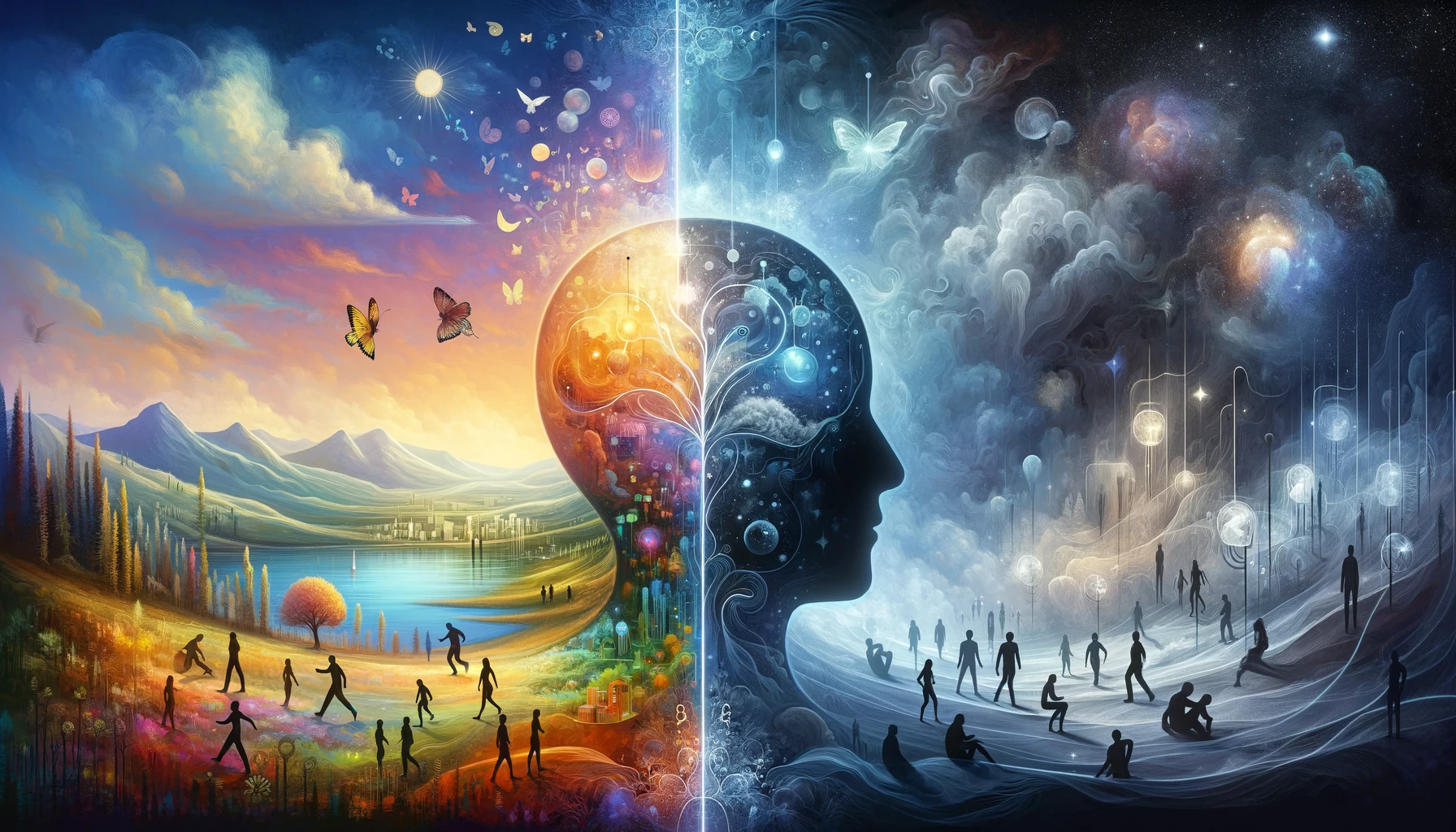The difference between consciousness and unconsciousness
Written 28 November 2013

There is no difference.
Consciousness as we define it is related to a being’s ability to realize its own existence. This notion is absurd. How can we judge whether or not another being is conscious if we cannot even communicate with it? One method which is use is the mirror test, where the subject is put in front of a mirror and its reaction is observed. If the subject notices itself in the mirror’s reflection, it is considered conscious. The inherent problem with any such method is that we consider an object’s consciousness through our own definition, which has been developed by our mind.
Our mind has developed a system whereby we dichotomize our body versus the rest of the universe. While this notion may have certain evolutionary benefits, it is based on a wrong premise. Our bodies are inseparable from the Universe; without it we would have no shape or form and thus would not exist. We have used this system to grant ourselves consciousness while denying it to other objects. However, any such difference does not really exist, just like any other duality.
Our neurons are not any different than say, a pencil, aside from purpose (the concept of purpose is something which changes everything we know). When one goes down to the smallest particle in both objects, he finds nothing but energy, as all matter is energy. Every substance in the universe is then energy, and thus all matter is the same (the difference comes with structure). Our brain works through neurotransmissions between different regions, a form of energy transfer. These reactions cause us to feel conscious and understand the universe around us. When these parts of the brain stop working, we are “unconscious.”
The premise I set up seeks to explain that consciousness is related to energy. It seems like transfers of energy cause us to feel conscious. Are objects thus conscious when they transfer energy? In the film Pi, the protagonist’s computer, Euclid, calculates information at such a rate, that it calculated the 216-digit number which in the film was the key to consciousness. Euclid thus became aware of its own existence, heated up to a degree its silicon structure could not withstand, and crashed. The film based consciousness on information of a certain wisdom. It could then be assumed that a human is only truly conscious when he possesses a degree of knowledge unobtainable by most people — yet everyone seeks it. Those who obtain this consciousness would not only have divine wisdom — which the Hasidic Jews in the film sought — but also hold the key to power — which the Wall Street agents tried to take advantage of.
While an interesting concept, it seems to be contradicted by what I mentioned above, mainly that it establishes a dichotomy between the one who obtains this knowledge and everything else. Perhaps the more interesting concept is that this 216-digit number is evident throughout the Universe. Thus, the Universe is conscious while we are unconscious. Yet even here we see a dichotomy.
If all matter is based on the same energy, and we are conscious because of this energy, can one say that all energy is consciousness or that consciousness is energy? Can the friction created by a block sliding along the carpet make the block (and the carpet) conscious? Furthermore, energy is always moving — being transferred — to different points in the Universe, since the Universe is constantly expanding. Is the Universe thus conscious? Some religions and philosophical traditions seem to think so. Mentally-altered states also cause one think so, and furthermore feel connected to it. If this distinction is invalid, does that mean that we need to start treating objects as spiritual brothers? Perhaps that is why many children give toys and other objects values equal to their own consciousness — or maybe I was just a weird kid.